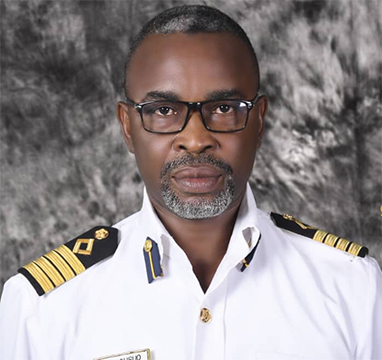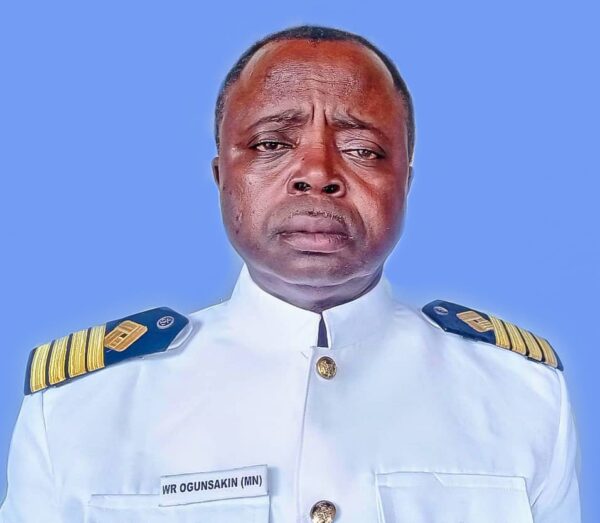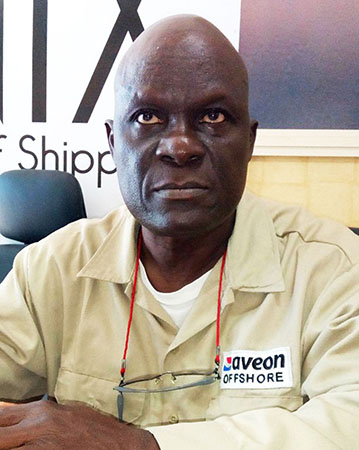
Nigerian seafarers have raised concerns and lamented the disparity in their salaries and remuneration compared to their foreign counterparts working onboard the same ship.
This is even as they said some of them are forced to bribe their manning agents in order to secure and keep their jobs.
In a chat with the National President of the Nigeria Merchant Navy Officers and Water Transport Senior Staff Association (NMNO/WTSSA), Engr. Bob Yousuo, he lamented that there is a wide disparity between the salaries paid to Nigerian seafarers and their foreign counterparts working onboard Cabotage vessels.
He stated that some shipping companies pay Nigerian seafarers non-commensurate wages compared to their foreign counterparts with the same Certificate of Competency (COC) and performing the same duties
While acknowledging the fact that there should be disparity, Yousuo noted that in the case of Nigerian seafarers, the gap is too wide to imagine. He also stated that the salary structure for the seafarers cannot be the same for all companies hence, he appealed for a better remuneration for Nigeria seafarers.
Yousuo informed that the Collective Bargaining Agreement (CBA) is an instrument that enables the protection of the rights and impressive remuneration of Nigerian seafarers. He however lamented that many shipping companies including indigenous ones have refused to sign the CBA for the improved welfare of the Nigeria seafarers.
The National President however called on the Federal Government to ensure that Shipping Companies and other employers of Labour in the maritime domain sign the CBA to ensure Nigerian Seafarers are paid as of when due and paid well.
“On some of the Cabotage vessels, we have some Nigerian officers working onboard those ships. But when you look at the disparity in their salaries compared to their foreign counterparts, the margin is so high. That is why they make us look inferior. What we are saying is that the Nigerian government and regulating bodies should ensure that our salaries are looked into.
“With the CBA, the unions can come in to discuss and agree with the management to protect the rights of the seafarers. Without CBA we cannot do much to protect them. So, the Federal government should do more to encourage the ship owners and ensure they comply. We cannot have a uniform salary or benchmark for the CBA. So, the union will negotiate with the company and agree based on their strengths for the betterment of the seafarers.

Speaking further, a Master Mariner and South West Director of the Merchant Seafarers Association of Nigeria (MESAN), Captain Williams Ogunsakin confirmed that marginalization exists in the remuneration of Nigerian seafarers compared to their foreign counterparts, noting that he was once a victim of this marginalization.
Captain Ogunsakin noted that according to international regulations, remuneration for foreign expatriates should be about 25 per cent higher, but in Nigeria, the difference is almost 70 to 80 per cent. He further explained that where a foreigner is earning $10,000, a Nigerian seafarer doing the same job and facing the same risk earns about $4,000 or less.
He further alleged that due to lack of jobs and high rate of unemployment among Nigerian seafarers, those who are lucky to get jobs are forced to constantly bribe their Manning agents in order to keep their jobs. Ogunsakin said those who refuse to do so might risk losing their jobs when they go on leave.
In his words: “I am a victim of that marginalization. I may not mention the name of the company I work for due to obvious security reasons. But where I am working, I am the only Nigerian Captain working in the midst of other foreigners. We have about five vessels. My Salary is just about 30 to 35 percent of what the foreigners are collecting. Where a foreigner is earning $10,000, a Nigerian seafarer doing the same job and facing the same risk is earning like $3,000 to less than $4,000.
“The international regulation of expatriates is 25 per cent higher. But in Nigeria here we have almost 70 to 80 per cent difference. The same happens with the ratings. When a bunk man is earning $1800, the same bunk man who is a Nigeria crew will be earning N250,000. But when a Nigerian goes out to another part of the world, they don’t give us that regard. We are cheating ourselves in Nigeria”, he lamented.
“There is a standardized payment structure for all Seafarers by the ITF, but Nigeria is not complying with it. Even with the Collective Bargaining Agreement, how many companies are complying with it? If you decide to stand by the CBA standards you will be surprised that someone else will come and take the job with a lesser salary, just because he wants to survive.
“They misinterpret our IMO conventions a lot in Nigeria. The MLC convention which is supposed to make life better for Nigerian seafarers has been abused and misinterpreted. If you go on board, you will need to worship the manning agents and give them bribes every month in order to keep the job. If you don’t, when you go on time-off, you may not be called back or better still asked to apply afresh with your documents as if you are picking up a new job”, Ogunsakin alleged.

On his part, the National President of the Nigerian Association of Master Mariners (NAMM), Captain Tajudeen Alao noted that when Nigerian seafarers also go work in other countries; officers who are indigenes of those foreign countries also complain that they are paying Nigerians so much money; compared to their remuneration.
Captain Alao said the reason for the wide disparity in the payment structure is because one is on his homeland while the other is on a foreign land, even though they are working on the same ship and in the same waters.
“The CBA should take care of that. We also go all around the world to work and we earn Dollars and the officers who are indigenes will also complain that they are paying us so much money and they are not paying them. It is an international job because when you are here, you are entitled to pension and all that, but for the seafarer who is a foreigner, he is only collecting his wages in dollars and taking care of taxes.
“There will always be that disparity because one is on his homeland while the other is on a foreign land, even though they are working on the same ship in the same waters. The flag of the ship is important. The ITF and ILO have tried to bring the wages up, but the CBA will improve the situation”, Alao concluded.
Responding to the low remuneration of Nigerian seafarers, a representative of the Department of Maritime Labour Services of the Nigerian Maritime Administration and Safety Agency (NIMASA), Mr John Kayode Peters noted that the agency has a schedule of payment for Nigerian seafarers, but added that, Collective Bargaining Agreement between the seafarers and their employer will determine how they are paid.
Peters however informed that NIMASA is engaging with the Ghana Maritime Authority on how to adopt the model of their seafarers’ salary. He added that the agency is also working closely with the Ministry of Finance, the Ministry of Labour and the Ministry of Transportation to ensure that Nigeria seafarers are removed from the normal payroll and given a special package that will make the job attractive to them.















